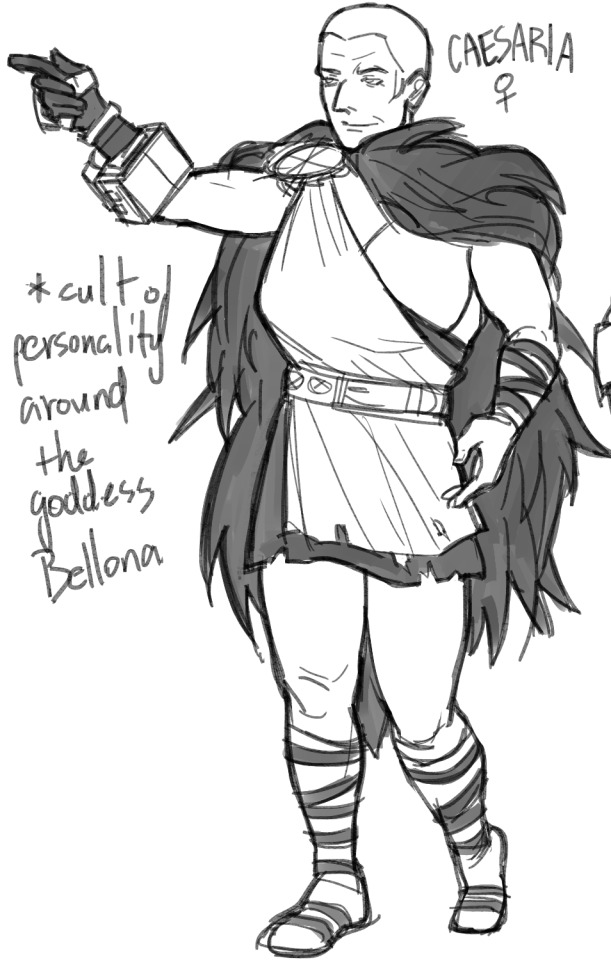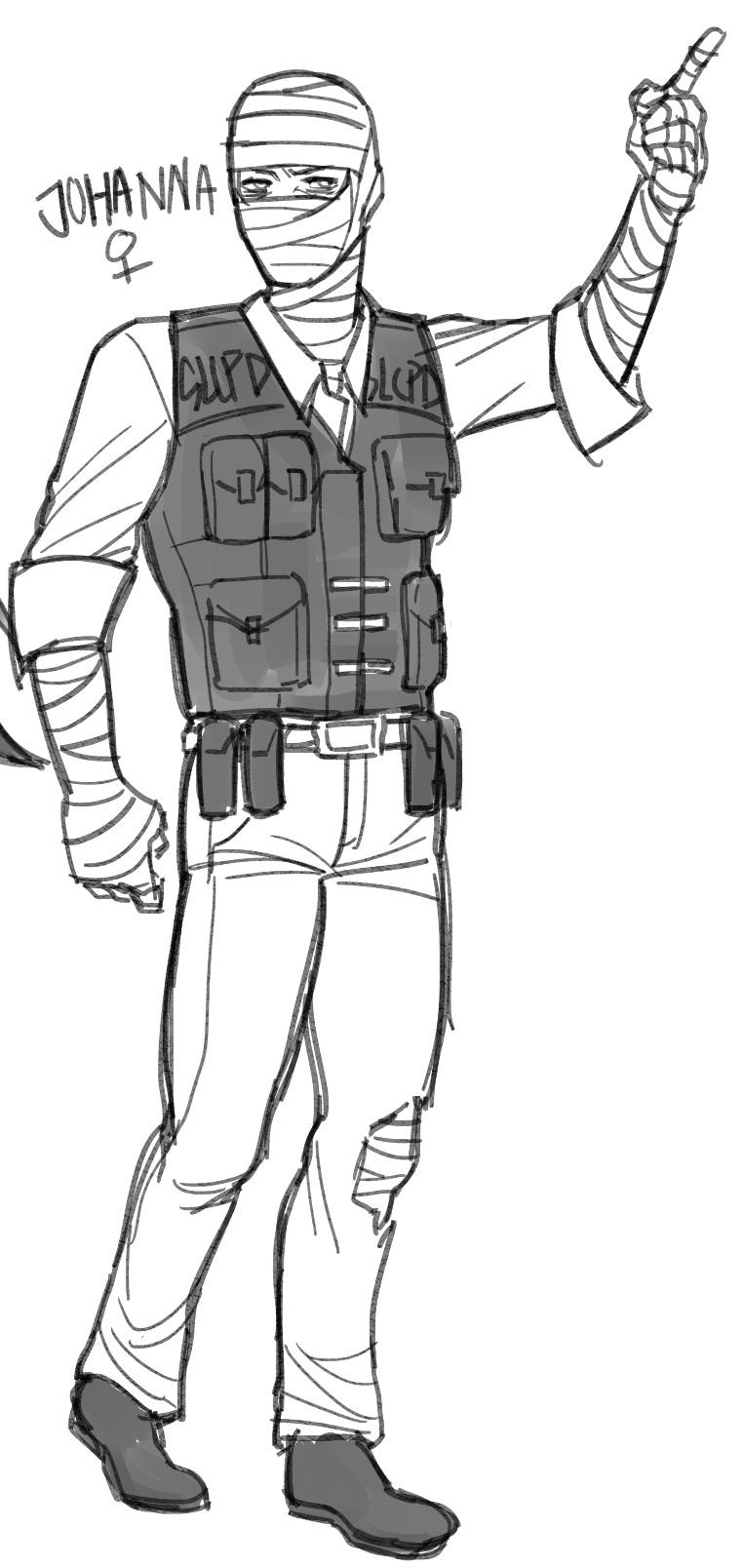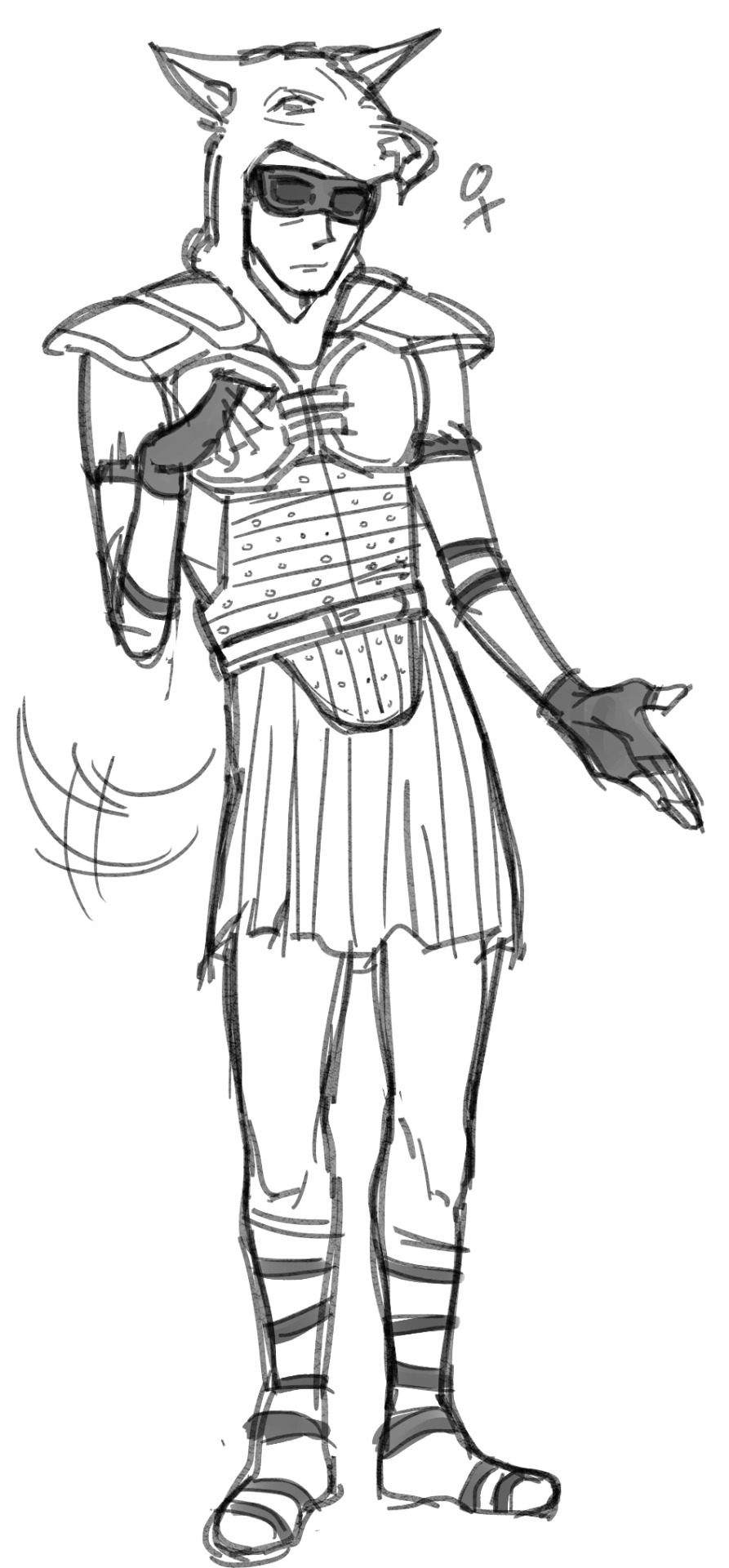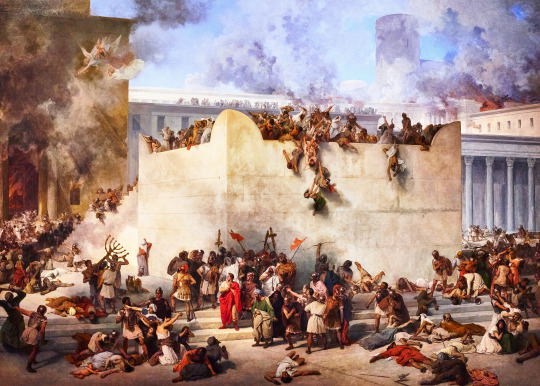#destruction of the temple
Explore tagged Tumblr posts
Text



what if caesar's legion was a matriarchy
#fallout new vegas#caesar fnv#joshua graham#vulpes inculta#i was interested in how the faction would work if it was a hyper militant women-only faction#and also because goddess bellona was a consort of mars and had her own temples back in the roman empire. which felt more befitting#as a goddess of war along with conquest and destruction. to preserve that themeing
393 notes
·
View notes
Text

broken glass
#sorry for making chilchuck ashkenazi. it will happen again#for those unfamiliar: at jewish weddings its tradition to break a glass (sometimes wrapped in cloth) to represent destruction of the temple#but also that relationships are fragile and take work#idk if im going to clean this up/color it so i wanted to post this sketchy version#L.txt#L.pix#chilposting#slavchuck#dungeon meshi#chilchuck#chilchuck tims
51 notes
·
View notes
Text
Let's talk about the idolized Aurangzeb. What he did and why is he considered great?

We will be focusing on the destruction of temples and hindu genocide done by him to debunk claims deny that this.
By the order of Aurangzeb (1645 AD) according to Mirãt-i-Ahmadî, Temple of Chintaman situated close to Sarashpur (Gujarat) and built by Sitaldas jeweller was converted into a mosque named Quwwat-ul-lslam (might of Islam) (1645 AD.) A cow was slaughtered to 'solemnize' the 'ceremony'.
Slaughtering a cow was a heinous choice, cow being one of the holiest animal in Hinduism. As well as, Hinduism prohibits animal slaughter, to do it right where their place of worship used to be where now stands a Mosque was simply to mock and destroy the souls of the indigenous population. The Pandits and Cows were always their main targets.
This was done before he even became the king, he was just a prince at this point.
When he became the king he sent Mir Jumla on an expedition to Cooch Bihar. Mir Jumla demolished ALL temples in that city and erected mosques in their stead. The general himself wielded a battle-axe to break the image of Narayana.
Mirãt-i-Ahmadî continues, In 1666 AD, he ordered the faujdar of Mathura to remove a stone railing which had been presented by Dara Shukoh to the temples of Keshav Rai. He explained: “In the Muslim faith it is a sin even to look at a temple and this Dara had restored a railing in a temple!”
You can still argue that Islamic Colonization simply had a political motif and not a religious one, if that would have been the case, none of the indigenous people would have been harmed, none of them would have been forcefully converted, their heritage would not have been destroyed right in front of their eyes, their schools and texts would have been burned. This is downright evil and was done in the name of Allah by all the Mughal tyrants.
“The richly jewelled idols taken from the infidel temples were transferred to Agra and placed beneath the steps leading to the Nawab Begum Sahib's (Jahanara's) mosque in order that they might be “pressed under foot by the true believers”. Mathura changed its name into Islamabad and was thus called in all official documents.”
In the same year, Sita Ram ji temple at Soron was destroyed as also the shrine of Devi Patan at Gonda. News came from Malwa also that the local governor had sent 400 troopers to destroy all temples around Ujjain.
According to Muraqat-i-Abul Hasan, civil officers, agents of jagirdars, karoris and amlas from Cuttack in Orissa to Medinipur in Bengal were instructed as follows:
“Every idol house built during the last 10 or 12 years' should be demolished without delay. Also, do not allow the crushed Hindus and despicable infidels to repair their old temples. Reports of the destruction of temples should be sent to the court under the seal of the qazis and attested by pious Shaikhs.”
(1672 AD) several thousand Satnamis were slaughtered near Narnaul in Mewat for which act of 'heroism' Radandaz Khan was tided Shuja'at Khan with the mansab of 3000 and 2000 horse.
(1675 AD) Guru Tegh Bahadur was tortured to death for his resistance against the forcible conversion of the Hindus of Kashmir. The destruction of gurudwaras thereafter is a well-known story which our secularists have succeeded in suppressing because the Akali brand Sikhs have been forging ties of friendship with Islam as against their parent faith, Hindu Dharma.
Mirãt-i-Ahmadî goes ahead: “On 6th January 1680 A.D. Prince Mohammad Azam and Khan Jahan Bahadur obtained permission to visit Udaipur. Ruhullah Khan and Yakkattaz Khan also proceeded thither to effect the destruction of the temples of the idolators. These edifices situated in the vicinity of the Rana's palace were among the wonders of the age, and had been erected by the infidels to the ruin of their souls and the loss of their wealth”. Pioneers destroyed the images. On 24th January the king visited the tank of Udayasagar.
His Majesty ordered all three of the Hindu temples to be levelled with the ground. On 29th January Hasan AN Khan made his appearance' and stated that “172 temples in the neighbouring districts had been destroyed.” His Majesty proceeded to Chitor on 22nd February.
Temples to the number of 63 were destroyed. Abu Tarab who had been commissioned to effect the destruction of idol temples of Amber, reported in person on 10th August that 66 temples had been levelled to the ground.’ The temple of Someshwar in western Mewar was also destroyed at a later date in the same year. It may be mentioned that unlike Jodhpur and Udaipur, Amber was the capital of a state loyal to the Mughal emperor.
Khafi Khan records in his Muntakhab-ul-Lubab: ‘On the capture of Golconda, the Emperor appointed Abdur Rahim Khan as censor of the city of Haiderabad with orders to put down infidel practices and innovations, and destroy the temples and build mosques on the sites.’ That was in 1687 AD. In 1690 AD, he ordered destruction of temples at Ellora, Trimbakeshwar, Narasinghpur, and Pandharpur.
Aurangzeb also destroyed, Kashi Vishwanath Temple in Kashi, Uttar Pradesh - which considered as the most scared hindu temple and land.
In 1698 AD, the story was repeated at Bijapur. According to Mirat-i-AhmadT: 'Hamidud-din Khan Bahadur who had been deputed to destroy the temples of Bijapur and build mosques there, returned to court after carrying out the order and was praised by the Emperor.' As late as 1705 AD, two years before he died, 'the emperor, summoning Muhammad Khalil and Khidmat Rai, the darogha of hatchet-men' ordered them to demolish the temple of Pandharpur, and to take the butchers of the camp there and slaughter cows in the temple.' Cow-slaughter at a temple site was a safeguard against Hindus rebuilding it on the same spot.
The saddest part is, all of this information, the bloodiest part of Indian History is never shown to the people, they grow up learning, Mughals were great emperors that built great things. When none of that holds any ounce of truth. It should be said without any censorship, these tyrants destroyed the culture, tradition and religions of India.
With all this information, if you're still defending these tyrants, if you still "want them around", if you still insist "it wasn't that bad", you absolutely do not care about "human rights", every activism you take part in is just performative. And I do not respect you or your opinion on any social issue.
#aurangzeb#mughal empire#hinduphobia#ancient india#colonisation in india#temple destruction#mughal invasion#hindublr#hindu temples#pseudo secularism#hindu genocide
92 notes
·
View notes
Text

imagine the sequel trilogy. except it's these guys.
#star wars#doodles#mandalorians#grogu#ragnar vizsla#(the blue guy)#mirta gev#(orange lady)#ig 11#r5 d4#imagine the chaos. the constant bickering. the explosions#here we have grogu the mandalorian jedi who will not hesitate to force choke his enemies#r5 and ig11 who are both capable of explosive self destruction#ragnar the vengeful baby vizsla#and mirta the vengeful baby not-fett#i dont know how they all manage to get places without stabbing each other to death#i dont even know how mirta is here i'm just smashing legends and canon together and i'm pretty sure something's broken#but hey. lets pretend she found boba extra early in this au because idk. maybe he still lives on tattooine?#and maybe her main revenge here is against the empire for the night of a thousand tears?#i am considering having rey (obi wans granddaughter via korkie just to mix in even more mando politics) be the sith#because grogu already killed kylo when he started storming the temple#sorry kylo don't trigger o66 ptsd from the guy who self taught himself force choke as an infant
20 notes
·
View notes
Text
Concealed in the Coriolis Ch 7
“First time I saw you, I thought you were a model,” Percy blurted out. “Models are – supremely attractive individuals people buy pictures of and would follow into danger simply because they crooked a finger.”
What a convoluted way to admit to attraction – except Percy couldn’t make himself confess to something he’d never entertained. Oh, Apollo had been hot.
But Annabeth and Rachel were hotter.
“Sure, waking up from unconsciousness just to see your face would be terrifying, if you threw me on the ground, I’d probably break all the bones in my body, and if you tossed a hairbrush at me, you’d knock a hole in my head,” Percy kept talking and just talking despite the horror filling Coronis’s features.
“I’ve never seen you fight, and you never stole a toothbrush for me or sent someone to medical with hives so I could go on a quest, but I’m certain you have your talents.”
What talents did Apollo have again?
“Like setting fires or speeding up vehicles,” Percy enthused. “Or ensuring that my arrows strike the target. No wait. That was Hera.”
Or whatever they called her in the city with a name that resembled the Phlegethon that Percy had already forgotten except to note it was one of those self-aggrandizing, egoistic examples of aristocracy that culminated in changing perfectly normal names into some reflection of your own name.
As if they were so terrified of being forgotten they needed to merge their legends with those of an entire city so that their shadow would endure for eternity.
A crackling noise from the ceiling drew Percy’s attention upwards. Even as he watched, dust from dried mortar rained down and cracks appeared around a rectangular piece of the roof. Percy peered up at the spot, trying to figure out whether this was an extraordinary circumstance or if the entire roof was about to collapse on his head.
The wooden tile dangled for a heartbeat, allowing a beam of sunlight to illuminate dust motes dancing in a column just an inch from Percy’s bare foot. Then the aged mortar gave up the fight and the wooden shingle collided with the horizontal rods forming a lattice below the ceiling, before crashing next to Percy’s foot and sending splinters and sunlight everywhere.
‘Oh, just apologise and say you’ve hit your head and keep spouting the opposite of whatever you mean!’ Coronis pleaded, covering her face with her hands yet peeking out through the gaps between her fingers.
“I mean,” Percy said hesitantly while staring at the drops of crimson blood beading up on the back of his hand, “You’re a wonderful healer. But is it really healing if you’re the reason the wounds were inflicted in the first place?”
Another shingle fell to his left.
“You didn't listen to the whole thing!” Percy tried instead. Apollo was the god of truth, wasn’t he? Perhaps he’d appreciate some unfiltered honesty instead of whatever unhinged narrative had escaped Percy’s mouth while trying to reach a compromise between the inevitability of crafting the future and the unwillingness to participate in that creation.
“You and I – can create the best child ever!”
Silence.
“Wouldn’t it be wonderful?” Percy wheedled. “A child with your hair and my eyes? He’d inherit your skills at healing and be able to cure even death. And he’d inherit ... a love for mortality from me and use those talents to cheat death. And then get murdered in a very messy manner, but until then it would be a land with neither droughts nor floods!”
‘Why?’ Coronis moaned. ‘Why would you say that?’
***
Previous | Next
Read more on Ao3
A spotify playlist for the whole series
#fanfiction#pjo#perpollo#percy jackson#apollo#percy x apollo#concealed in the coriolis#coronis#Percy's attempts at seduction are doomed to failure#Apollo is confused whether Percy is there just to enrage him#Coronis is simultaneously happy she's not in the body about to be punished and upset that her body is spouting such nonsense#At least she's sure Apollo is not going to have a baby with Percy at the moment#The priest is going to be super upset about the rampant temple destruction
32 notes
·
View notes
Text

Francesco Hayez (Italian, 1791-1882) The Destruction of the Temple of Jerusalem, 1867 Dorsoduro, Venice, Veneto Tisha B'Av (lit. 'the ninth of Av') is an annual fast day in Judaism, on which a number of disasters in Jewish history occurred, primarily the destruction of both Solomon's Temple by the Neo-Babylonian Empire and the Second Temple by the Roman Empire in Jerusalem.
#coming up this year from 26th-28th of July#francesco hayez#hayez#italian#italy#mediterranean#europe#southern europe#the cradle of civilization#cradle of civilization#Tisha B'Av#1700s#1800s#the ninth of av#tisha b'av#art#classical art#european art#europa#the destruction of the temple of Jerusalem#oil painting#painting#art history#historical art#history#the Bible
116 notes
·
View notes
Text
Me watching atla live action 🤝 me watching Percy Jackson show
THEY'RE CHILDREN😭
#Istg in atla episode 1 seeing Zuko face up against Sokka was wild#CHILDREN PLAYING DRESS UP#CHILDREN PLAYING AT WAR#It was definitely a good idea to actually SHOW the destruction of the Air Temple cause holy shit#Just seeing the show played out in live action by age appropriate actors was always gonna make the tragedy hit harder#And I like that they decided to lean into it#I've only seen the first episode so far#But I kinda feel that if the animated series was able to somehow get away with being a kid's show#The live action adaption enjoys no such privilege#And it should be fascinating to see#Atla#avatar: the last airbender#avatar the last airbender#Pjo#percy jackson
33 notes
·
View notes
Text
Geography and landscape come into focus in the area of religious belief. Places of pilgrimage – tirthas and ziarats – are scattered all over the subcontinent. Pilgrimage crosses frontiers and carries cultural idioms from one place to another. Some sites are specific to a religion and retain their prominence as long as they can count on the patronage of that religion. But many more places acquire an association with the sacred and this brings about a cluster of religious connections, sometimes in succession and at other times simultaneously. Somanatha and its vicinity in Gujarat were home to places of worship revered by Vaishnavas, Buddhists, Shaivas, Jainas and Muslims. Patterns such as this cannot be explained by simply maintaining that there was religious tolerance, as there were expressions of intolerance at some places. Evidently there were other concerns that made such places attractive. Sacred sites could also be taken over by a winning religion – thus a megalithic site was appropriated for the building of a Buddhist stupa at Amaravati, a Buddhist chaitya was converted into a Hindu temple at Chezarla, a Hindu temple was converted into a Muslim mosque at Ajmer, and there are many more examples. Possibly some sites were thought to be intrinsically sacred and therefore attracted new religions, or perhaps taking over a sacred site was a demonstration of power. Sacred groves and trees, mountains , caves in hillsides, springs and pools are part of popular worship where landscape and belief come together. When they are appropriated by the powerful and the wealthy, then the landscape has to host monuments.
Early India: From the Origins to AD 1300 (2003), by Romila Thapar
44 notes
·
View notes
Text

Thanassis Issaris
at the national archaelogical museum of Athens, 2013 [crop]
Nikes acroteria (acroterion/acroterium: architectural ornament placed on a flat pedestal called the acroter or plinth, and mounted at the apex or corner of the pediment) from Artemis' Temple in Epidaurus. Collection Athens National Archaelogical Museum

https://www.flickr.com/photos/tissaris/8707186221/in/photostream/
7 notes
·
View notes
Text
Strength In Ruins
#animation#digital art#star wars#star wars rebels#lothal#fire#ghost#tie fighter#laser#the father#the son#the daughter#jedi temple#this was longer than i expected#artists on tumblr#stars#sunset#night#destruction
32 notes
·
View notes
Text
it’s been over 2,000 years since the burning of the library of alyxandria and I’m still upset about it
#Forever mourning the destruction of the wonders of the world#athena parthenos#temple of Artemis#library of alexandria#gardens of Babylon
6 notes
·
View notes
Text
Ok but why did the 3,000 year old tomb city have a self detonate button? In the middle of the hallway? Why did they not hit the self detonate after they knew they didn't want anybody stepping foot into Hamunaptra again. Did Beni get lost moving the 2nd bag of treasure? conveniently the correct weight, with just a random "I'm here for your convenience" Anubis head self destruct lever? Would it have made more sense for a treasure being disturbed that the self destruct is activated?
The movie was almost perfect, but self destructing temple always confused me
Welp, time to watch the next one
#the mummy#90s#movies#brendan fraser#rachel weisz#sand everywhere#temple#destruct#self destruction button#ancient egypt
3 notes
·
View notes
Text
When Thrawn was like "give me all the intel you have on Ahsoka" I would have given ANYTHING to have him try an Art Insight Check. I need Lars Mikkelson painted blue, stroking his chin with one hand, and examining Ahsoka's Hand Turkey from Jedi Kindergarten with the other. I NEED IT
#don't ask me how the box of ahsoka's creche art projects survived the destruction of the jedi temple#BUT IT DID#AND IT'S IN THE IMPERIAL ARCHIVES NOW#AND THRAWN WILL CRIPPLE THE NEW REPUBLIC USING ONLY COLOR BY NUMBERS WORKSHEETS#ahsoka tano#thrawn#ahsoka show#ahsoka spoilers
35 notes
·
View notes
Text
wow this has such majoras mask vibes! (guy who is currently playing majoras mask)
#this is about botw (an au for it)#just. if you take it as ganon hurting everyone else like hes been hurt (being trapped under tbe castle forgotten for ages and ages with nob#ody but himself and the people who trapped him directly above him. also corrupting the sheikah tech used against him (thats a stretch consi#dering the only way he was able to do that was that the king 10000 years ago was awful and buried the tech UNDER THE CASTLE while chasing t#he sheikah out)) + the eye motifs? (majoras eyes being indicators for bosses weak points and ganons malicw eyes) it just. huh#though in botw link doesnt really. well he sort of calls out to people (the champions which could be interesting for character arcs) but ot#herwise its kind of just. three people having a 2 v 1 in a ruined world that just ended up hurtinf all of them#literally nobody can turn back to what they had. not ganon in the past. not link (though i Do have feelings about pre cal link but thats al#l hcs so im not putting that here). and not zelda#and not the champions either (though the only ones grief we really see is miphas. maybe revali?)#its just. literally everything Is There Still.#the guardians. the older ruins like the forgotten temple. the great plateau#on one hand i see the destruction of the castle/monarchy great and will lead to good. but also People Died#deya village. the tabantha village. the characters couldve seen the time before the calamity as Great (even if it wasnt? it all depends! bu#t nostalgia and all that)#so. yeah.#i dunno what the thesis is here i just think its neat#also that one image i can stretch botws theme as much as i can concieve#this also gives me a fic idea. however i feel like i would be doing characters dirty in it
14 notes
·
View notes
Text
it’s interesting in bardugos evolution as a writer - this is a much simpler book in a way than soc, but it’s a piece of historical fiction to me that really scratches the soul and dives deep into Jewish history in the most yearning, painful ways
#Luzia remembering only the beginning of hamotzi! The feeling of being on the edge of destruction jsut a few generations on!#The line about how luzias hair was hair that had survived the destruction of the temple
13 notes
·
View notes
Text

Remembering,
Khaled al-Asaad 'Mr Palmyra'
Cause of death : Decapitation
In May 2015, modern Palmyra and the adjacent ancient city came under the control of the Islamic State. Al-Asaad helped evacuate the city museum prior to the Islamic State's takeover, but was himself captured by the terrorist organisation. The Islamic State then tortured al-Asaad in an attempt to discover the location of the ancient artifacts that he helped hide. He was murdered in Palmyra on 18 August 2015 at the age of eighty-three.
The New York Times reported:
After detaining him for weeks, the jihadists dragged him on Tuesday to a public square where a masked swordsman cut off his head in front of a crowd, Mr. Asaad's relatives said. His blood-soaked body was then suspended with red twine by its wrists from a traffic light, his head resting on the ground between his feet, his glasses still on, according to a photo distributed on social media by Islamic State supporters.
In February 2021, Syrian state sources reported the discovery of al-Asaad's body in the countryside 10 km east of Palmyra.[22]
Along with al-Asaad, Qassem Abdullah Yehya, the deputy director of the DGAM Laboratories, also protected the Palmyra site, and was murdered by the Islamic State while on duty on 12 August 2015. He was thirty-seven years old
"he had a degree in history from Damascus University, he had no formal training in archaeology - all his knowledge in this field was self-taught."
"When you look at Palmyra today as an archaeological site, really that's the legacy of Khaled al-Asaad," Mr Azm says.
Here, you can read about the antiquties of Palmyra
This is the source I found so far, with details and colored pictures about his work and legacy
Al-Assad was one of the few people on Earth who was fluent in the language of ancient Palmyrian. By the end of his career, he had translated over 3000 lines of text. In addition, he taught himself English to be able to communicate with visitors and scholars interested in the area.
#Khaled al-Asaad#Palmyra#Archaeology#Ancient Syria#Syrian Civil War#Cultural heritage#Antiquities preservation#ISIS#Cultural destruction#Heritage protection#Palmyrene art#UNESCO World Heritage#Roman history#Ancient trade routes#Archaeological hero#Syrian history#Archaeological sites#Cultural resistance#Palmyra temples#Syrian archaeologist#Palmyra ruins#Ancient Middle East#Baalshamin Temple#Palmyra monuments#Zenobia#Roman Empire#Syrian heritage#Heritage conservation#Archaeological excavation#ISIS war crimes
2 notes
·
View notes